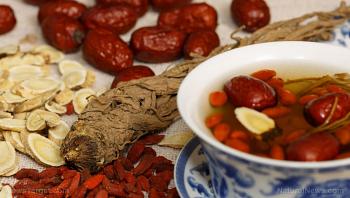How can TCM help with mild cognitive impairment?
(Natural News) In this article, researchers from the Royal Melbourne Institute of Technology (RMIT) in Australia evaluated clinical evidence for various Chinese herbal medicines (CHMs) used to treat mild cognitive impairment (MCI). Their review was published in The Journal of Alternative and Complementary Medicine.
- It is estimated that MCI affects six to 12 percent of the population. Early treatment, however, could halt its progression to a more severe cognitive impairment.
- The researchers searched five biomedical databases for randomized controlled trials that compared orally administered CHMs with a control group.
- They used the Montreal Cognitive Assessment (MoCA) to assess changes in cognition. MoCA is often used to evaluate the effects of various CHMs on MCI.
- The researchers based their analyses on comparisons between the treatment and control groups, as well as on control intervention and study duration.
- Of the nineteen studies included, 16 contributed to data analyses. Three studies were placebo-controlled; nine compared a CHM with a pharmacotherapy; three combined a CHM with a pharmacotherapy; and one combined CHM with cognitive training.
- In two placebo-controlled studies that lasted 24 weeks, results favored CHMs at the end of treatment.
- Compared with the placebo group, participants who took oral CHMs had improved MoCA scores after treatment.
- Two studies that used bu yang huan wu tang — a CHM formula whose ingredients are extensively studied — in combination with donepezil reported improvement in the integrative groups, but treatment lasted only eight to 12 weeks.
Based on the improvement in MoCA scores, the researchers concluded that oral CHMs, particularly bu yang huan wu tang, are effective treatments for MCI, and future studies should include their ingredients in test formulations.





